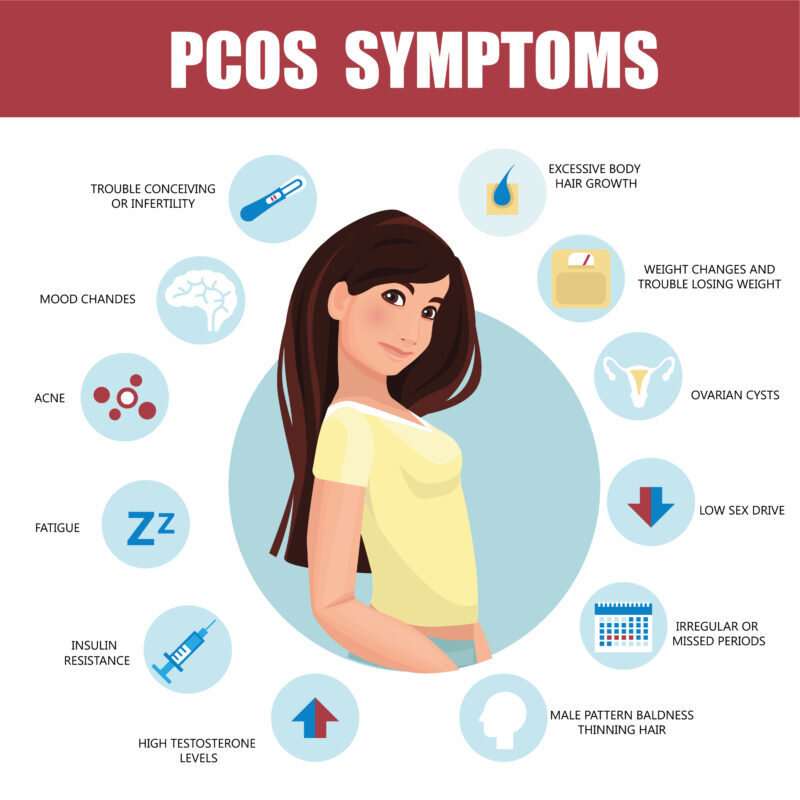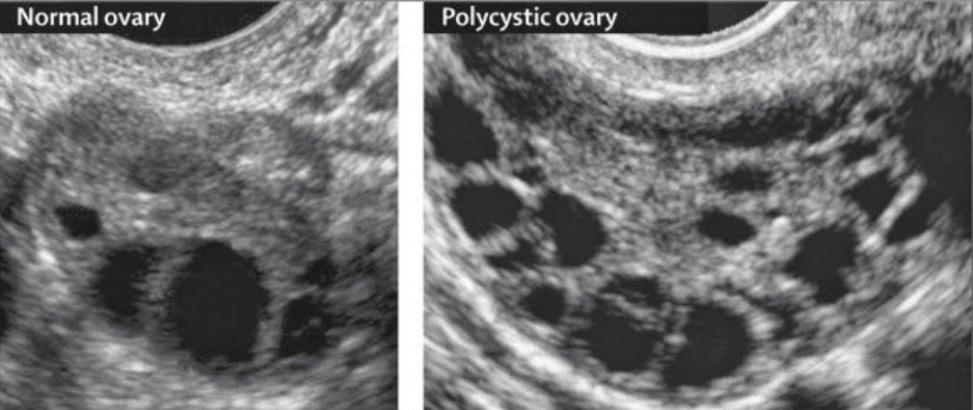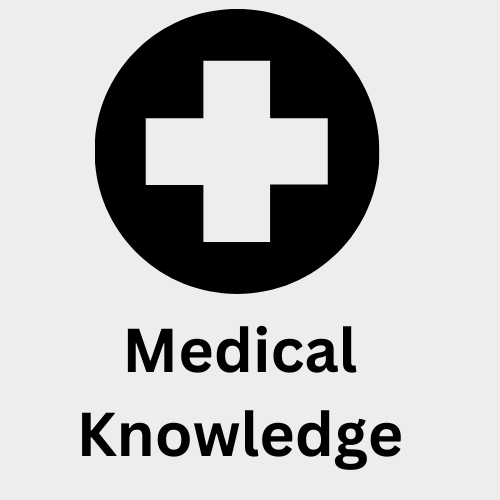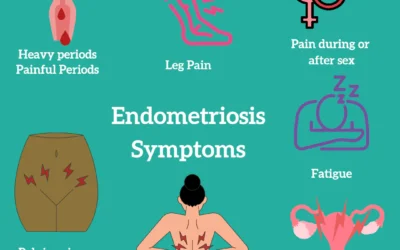Polycystic Ovary Syndrome (PCOS) is one of the most common hormonal disorders affecting women of reproductive age. Affecting around 1 in 10 women worldwide, PCOS can cause various symptoms, including irregular periods, weight gain, acne, and fertility issues. Despite being widely recognized, many women remain unaware of the condition or struggle with a delayed diagnosis. Understanding the causes, symptoms, and treatment options for PCOS is essential for managing its impact on women’s health. In this article, we will explore everything you need to know about PCOS, from its causes to the latest treatment options.
Table of Contents
- Introduction: What is PCOS?
- Causes of Polycystic Ovary Syndrome
- 2.1 Genetics
- 2.2 Hormonal Imbalance
- 2.3 Insulin Resistance
- Symptoms of PCOS
- 3.1 Irregular Periods
- 3.2 Excessive Hair Growth
- 3.3 Acne and Skin Problems
- 3.4 Weight Gain
- 3.5 Infertility
- Diagnosing PCOS
- Treatment Options for PCOS
- 5.1 Lifestyle Modifications
- 5.2 Medications
- 5.3 Surgical Options
- Managing PCOS: Lifestyle and Emotional Support
- Conclusion: Living Well with PCOS

Introduction: What is PCOS?
Polycystic Ovary Syndrome (PCOS) is a hormonal disorder that affects women’s ovaries, leading to irregular menstrual cycles, ovarian cysts, and an imbalance of sex hormones. Women with PCOS often have higher levels of androgens, the male hormones, which can disrupt ovulation and cause symptoms like excessive hair growth and acne. While the exact cause of PCOS remains unclear, it is a lifelong condition that can impact various aspects of health, including fertility, metabolism, and mental well-being.
PCOS is not a one-size-fits-all condition, and its symptoms can vary widely among women. However, with proper care, many women with PCOS can manage the condition and lead healthy lives. Early diagnosis and treatment are crucial to addressing the symptoms and preventing complications like diabetes, heart disease, and endometrial cancer.
Causes of Polycystic Ovary Syndrome
The exact cause of PCOS is unknown, but several factors are believed to contribute to the development of this condition. The primary contributors include genetics, hormonal imbalances, and insulin resistance.
2.1 Genetics
Genetics plays a significant role in PCOS, as the condition tends to run in families. If a woman’s mother or sister has PCOS, she may be at a higher risk of developing the disorder. Certain genes may predispose women to PCOS, but more research is needed to understand the exact genetic factors involved.
2.2 Hormonal Imbalance
PCOS is often characterized by an imbalance of hormones. Women with PCOS typically have elevated levels of androgens, the male hormones, which can disrupt ovulation and lead to symptoms like irregular periods, excessive hair growth, and acne. Additionally, an imbalance of estrogen and progesterone may occur, which can interfere with the menstrual cycle and lead to infertility.
2.3 Insulin Resistance
Many women with PCOS have insulin resistance, meaning their bodies do not respond effectively to insulin. As a result, the body produces more insulin to compensate, leading to higher levels of insulin in the bloodstream. Elevated insulin levels can cause the ovaries to produce more androgens, worsening symptoms. Insulin resistance also contributes to weight gain, making it more difficult to manage the condition.
Symptoms of PCOS
PCOS symptoms vary widely among women, but the most common ones include:
3.1 Irregular Periods
Irregular or absent periods are one of the hallmark signs of PCOS. Due to hormonal imbalances and lack of ovulation, women with PCOS may experience infrequent or prolonged menstrual cycles. Some women may have periods only a few times a year, while others may have prolonged bleeding.
3.2 Excessive Hair Growth
Women with PCOS may experience excessive hair growth (hirsutism) on the face, chest, back, or abdomen due to elevated levels of male hormones (androgens). This is often one of the most noticeable symptoms of PCOS and can cause significant distress.
3.3 Acne and Skin Problems
Higher androgen levels can also lead to acne, oily skin, and other skin issues. Acne typically appears on the face, chest, and upper back and can be persistent or severe, making it harder to manage with typical skincare routines.
3.4 Weight Gain
Weight gain is another common symptom of PCOS, especially around the abdomen. Women with PCOS may have difficulty losing weight due to insulin resistance, which can lead to increased fat storage. Maintaining a healthy weight can also be challenging, but it’s essential for managing the condition.
3.5 Infertility
Infertility is one of the most significant concerns for women with PCOS. Irregular ovulation or anovulation (lack of ovulation) is common in PCOS, making it more difficult to conceive. Women with PCOS may also have a higher risk of pregnancy complications, such as gestational diabetes and preterm birth.
Diagnosing PCOS
Diagnosing PCOS typically involves a combination of medical history, physical exams, and laboratory tests. To confirm a diagnosis of PCOS, doctors typically consider the following:
- Irregular periods or absence of menstruation
- Excessive hair growth, acne, or scalp thinning
- Elevated levels of androgens (male hormones)
- Ultrasound imaging to detect ovarian cysts
- Blood tests to check for hormone imbalances, including testosterone, estrogen, and insulin levels
In some cases, a diagnosis may require ruling out other conditions with similar symptoms, such as thyroid disorders or adrenal issues.

Treatment Options for PCOS
While there is no cure for PCOS, various treatment options can help manage the symptoms and reduce the risk of complications. Treatment depends on the severity of symptoms and whether the woman desires pregnancy.
5.1 Lifestyle Modifications
Lifestyle changes are often the first line of treatment for managing PCOS. These include:
- Healthy Diet: A balanced diet rich in whole grains, fruits, vegetables, and lean proteins can help manage insulin resistance, promote weight loss, and reduce the risk of complications like diabetes.
- Regular Exercise: Exercise can help improve insulin sensitivity, reduce excess weight, and improve overall well-being. Aim for at least 30 minutes of moderate-intensity exercise most days of the week.
- Stress Management: Stress can exacerbate hormonal imbalances. Practices such as yoga, meditation, and mindfulness can help reduce stress and improve symptoms.
5.2 Medications
Several medications are available to manage the symptoms of PCOS, including:
- Birth control pills: These help regulate periods and reduce symptoms like acne and excessive hair growth by balancing hormone levels.
- Metformin: This medication is commonly used to manage insulin resistance and lower blood sugar levels. It can help with weight loss and regulate periods.
- Anti-androgens: Medications like spironolactone can reduce excessive hair growth and acne by blocking the effects of male hormones.
- Fertility medications: For women trying to conceive, medications like Clomid (clomiphene citrate) can stimulate ovulation and improve fertility.
5.3 Surgical Options
In some cases, surgery may be recommended if other treatments are ineffective. One option is ovarian drilling, a procedure in which small holes are made in the ovaries to restore normal hormone production and ovulation. This is typically done if a woman has trouble ovulating and has not responded to other treatments.
Managing PCOS: Lifestyle and Emotional Support
Living with PCOS can be challenging, both physically and emotionally. Many women experience anxiety, depression, and frustration due to the symptoms and long-term management of the condition. Emotional support is essential, and women with PCOS may benefit from:
- Support groups: Connecting with other women facing similar challenges can provide emotional relief and practical advice.
- Therapy: Counseling or therapy can help address the emotional toll of PCOS, particularly if infertility or other symptoms are causing stress.
Conclusion: Living Well with PCOS
Polycystic Ovary Syndrome (PCOS) is a complex condition that affects many aspects of a woman’s life, from reproductive health to emotional well-being. While there is no cure for PCOS, various treatment options—such as lifestyle modifications, medications, and even surgery—can help manage symptoms and improve quality of life. Early diagnosis and proactive management are crucial to reducing the risk of complications like diabetes, heart disease, and infertility.
If you suspect you have PCOS or experience symptoms like irregular periods, excessive hair growth, or acne, it’s essential to consult with a healthcare provider. With the right treatment and support, women with PCOS can lead healthy and fulfilling lives.

